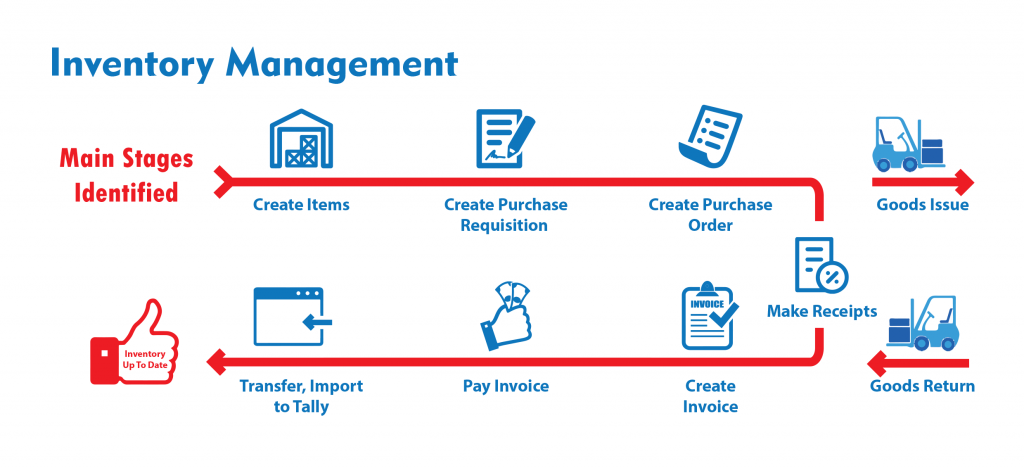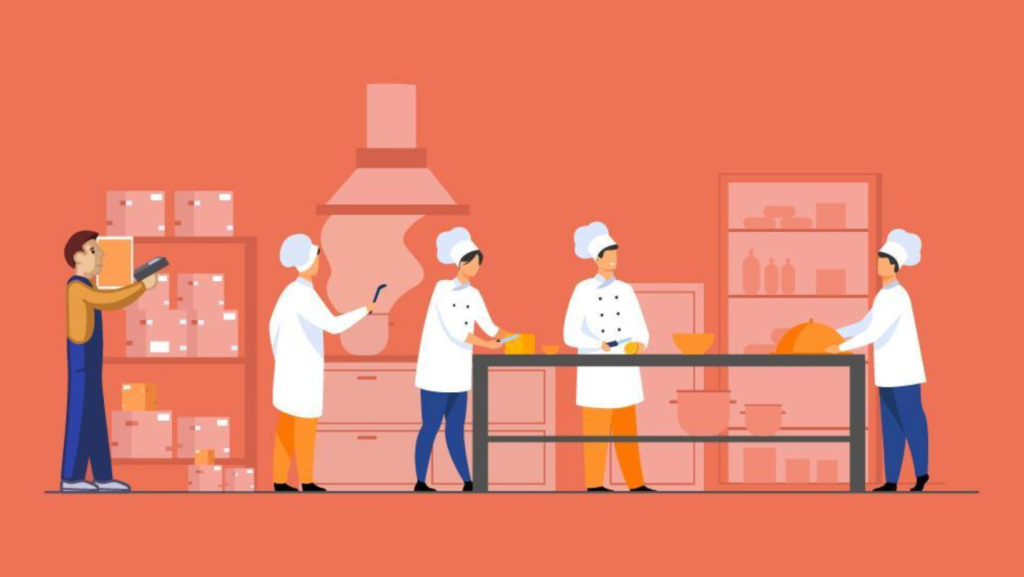
Inventory is having an account of raw materials required for production or for sale. Inventory can be of raw materials, equipment, human resources etc. Inventory management helps to generate more income, have more satisfied customers and Identify fast and slow-moving stock. At UEI Global Trivandrum, India’s Leading management Institute in Kerala, we emphasise on modern techniques of Teaching with Equal Importance given to Theory and Practical. Inventory management is taught to students through Industry visits and practical sessions in the kitchen and theory in the classroom. Students are able to correlate both and come up with innovative ideas on best practices within limited resources.
Inventory is different in every organisation for example in a marketing firm its inventory is the products available for sale whereas for a Manufacturing company the raw materials required for production is its Inventory.
Inventory management is a tool for organisations to manage their raw materials efficiently. The main purpose of Inventory management is to make available the required raw materials at any point of time without overstocking or understocking and also to know when there may be shortfalls. Overstocking is a liability because it incurs costs for storage.
Inventory when sold turns into income for the organisation. This is called Inventory turnover. This shows us how raw materials are used within a period of time. The stock turnover helps us to calculate the quantity of raw materials required for a period of time. All business organisations will always want to have more business volume rather than stock volume .Poor management of inventories may lead to dead stock or over stocking which becomes a liability to the organisation.

During Food Production Practical sessions at UEI Global, Trivandrum, Kerala,,students are taught about preparing Indent, portioning, cost controlling measures, proper utilization of raw materials and also about reusing ingredients whenever possible.
Managing Inventories helps in controlling costs and improving efficiency of an Organisation. Inventories can me managed with the following steps:
1. Storing the raw materials according to their group.
2. Proper Pest controls
3. No Overstocking
4. Practising FIFO&LIFO
5. Labelling or tagging of highly perishables
6. Canned foods to be used before date of expiry
7. Monitoring temperatures and humidity levels to prevent mold.
8. Proper purchase and Receiving procedures
9. Seasonal purchases
10. Proper storage facilities.
FIFO
FIFO stands for First- in- first- out which means any raw material which is received first should be utilized first. This process is proper utilization of raw materials before they expire.
LIFO
LIFO stands for Last- in First- out which means the raw material cost are calculated with the current price of raw materials. This is mainly done for Inventory stock taking and costing.
Proper management of Inventories helps organisations to control cost and work efficiently.
In Food Production department of the Hospitality Industry raw materials are classified into 3 categories:
Non -Perishables
These are raw materials that can be stored at room temperature with controlled humidity. They should be stored in well ventilated rooms with proper pest control measures. They are dry items like rice, flours, cereals, pulses etc. Never stock them more than the minimum requirement.
Perishables
These are raw materials that should be stored at temperatures around 5 to 8 degree Celsius. They are stored in coolers .The temperatures have to be monitored frequently because if there are huge variations in temperatures it may lead to spoilage which incurs costs. Perishables include vegetables, eggs, fruits etc.
Highly perishables
These are raw materials which have to be stored at Freezing temperatures .They have high protein content and so can spoil very fast .They should be stored properly in such a way that no cross contamination happens. Do not over stock these materials as it may lead to spoilage. These include meats, poultry, fish, milk etc.
At UEI Global Trivandrum, students get a first hand exposure to Inventory and stocks through Market visits, Industrial Visits and practical sessions in the UEI Kitchens. Students are able to relate their experiences to theory of Inventory Management which is a part of their 3 year Bachelores in Vocational Studies- Hotel Management Programme. Our colleague Chef Binu V R stationed at UEI Global Trivandrum has enveloped his findings in the above mentioned words.








